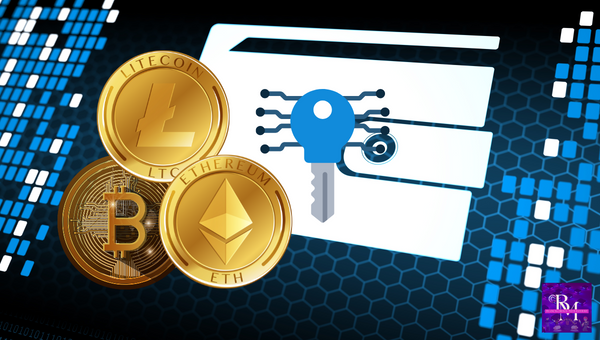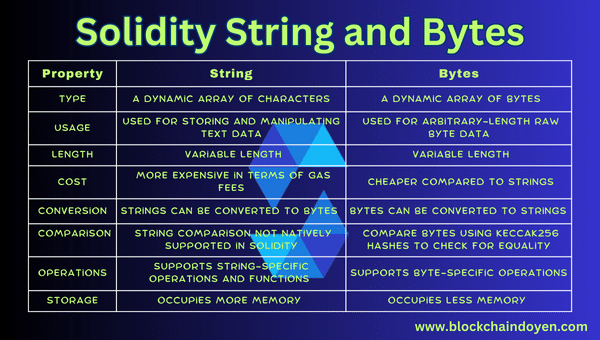|
Getting your Trinity Audio player ready...
|
What Is a Crypto Wallet? A Beginner’s Guide
Introduction
Have you heard much about cryptocurrency and wondered if you should invest in it? Many people have heard the hype, but are not sure how to safely secure their assets. This is where a Crypto Wallet comes into play. A Crypto Wallet is really the foundation of your cryptocurrency. The convenience and security that a Crypto Wallet provides are essential to keeping and growing your investment. Hence, it is important to choose it wisely. The type of crypto wallet (hot or cold) can affect how secure your assets are and even whether or not you need to pay taxes on them.
In this fundamental guide, you will get all the information you need to start using non-custodial crypto wallets with ease. You will also learn how they work and why everyone should have one.
What Is a Crypto Wallet?
A crypto wallet is a software program that stores your cryptocurrency. It is often referred to as a digital vault since it holds your private keys, which you need to access and spend your digital currency.
Crypto wallets store, send and receive crypto assets. If you are new to cryptocurrencies like Bitcoin or Ethereum, then this article is for you. It will entertainingly help answer any questions you have about crypto wallets. So, what are we waiting for? Let us start the fun ride!
What Are the Main Components of a Crypto Wallet?
There are 3 main things that make up a crypto wallet:
- Public address: A public address is a string of characters that represents your wallet on the blockchain. It’s like a street address for your digital assets. Anyone can see this, but they cannot access or spend your funds without knowing your private key.
- Private key: This is a string of characters that allows you to send tokens from your cryptocurrency wallet to another person’s wallet (and vice versa). Keep in mind that if someone were to obtain this information, they would be able to take control over all of the tokens inside your wallet. For this reason, it is important that you keep it safe and never share it with anyone else!
- Wallet Address: This is a combination of letters and numbers that represents your public key and allows people to send funds to your wallet address. You can copy and paste this address from any exchange or website where you hold cryptocurrency so that other people can send funds directly into your account.
Why Do You Need a Crypto Wallet?
As we mentioned earlier, your cryptocurrency wallet is where you store, send and receive your coins. It is like a bank account for cryptocurrencies.
A crypto wallet gives you access to keep track of your cryptocurrency portfolio, as well as manage all your transactions. You can also use this digital wallet to make purchases and other payments. This is just like how you would do with a traditional bank account or credit card.
What Are the Different Types of Crypto Wallets?
We can classify cryptocurrency wallets based on their type, which relates to how we access them.
The following is the primary classification of crypto wallets.
- Hot wallet: Examples include software wallet.
- Cold wallet: Examples include hardware wallets, paper wallets, and air-gapped wallets.
Hot Crypto Wallet
A hot crypto wallet is an online software program where you can store your cryptocurrencies. These wallets can connect to the Internet and you can access them from anywhere in the world with an Internet connection.
Security experts advise that hot wallets are good for day trading and small transactions, however, they do not recommend them for long-term storage as hot wallets may be vulnerable to hackers and cyber-attacks.
Paper wallets are printable pieces of paper containing all the information needed to access your crypto holdings.
Cold Crypto Wallet
A cold crypto wallet is a physical device that stores the private key of your cryptocurrency. These wallets are not connected to the internet, so cyber thieves or hackers can not hack or compromise them. Cold wallets are best for storing large amounts of cryptocurrency because they are more secure than hot wallets and you can keep them offline at all times.
The cold wallet can be a hardware wallet, paper wallet, or any other physical device where you can store private keys. By design, hardware wallets can store a large amount of cryptocurrency offline.
An air-gapped wallet is a type of cold storage that remains disconnected from not only the traditional internet but also from Bluetooth, WiFi, NFC, and USB drives. This makes it impossible for hackers to access the wallet.
Air-gapped wallets are not new, but they have become more popular in recent years as bitcoin has become more widely accepted and people want to keep their coins safe from hackers.
Custodial Crypto Wallet
You can define a Custodial Wallet as a wallet in which the third party is having the private keys. This means the third party has full control over your funds while you only have to give permission to send or receive payments.
Non-Custodial Crypto Wallet
It is a type of Blockchain wallet that lets you be your own bank. This implies that users have full control over their funds and the associated private key. As mentioned at the beginning of this article, this post is about non-custodial wallets only. We are going to have a separate article on the custodial wallet.
How Do You Get a Crypto Wallet?
You can get a cryptocurrency wallet in a number of ways. You can download an app onto your computer or mobile device, or you can use a web-based application. Also, a lot of high-profile users store their tokens/coins with an offline paper wallet. A paper wallet is the most secure way but also the least convenient method as you will not be able to access the tokens/coins easily.
When choosing a wallet, make sure it has a good reputation and that it’s easy to use. You should also make sure that the wallet is compatible with any devices you may have (iPhones, PCs, etc.).
What to Consider When Choosing a Crypto Wallet?
- Ease of use: You want a crypto wallet that can easily send, receive and store your cryptocurrency. It should be easy to understand, with no complicated processes or difficult steps involved in using it.
- Customer support and reputation: This is one of the most important factors in choosing a wallet. If you have any questions or issues, you want to be able to get help quickly. Look for wallets that have 24/7 customer support available via email, phone, or chat.
- Security features: Before choosing a wallet, make sure it offers strong security features. Good security should include two-factor authentication, seed recovery phrases, and private keys that never leave your device. Furthermore, it should include other measures such as spending limits and notifications when transactions occur in real time.
- User interface: The user interface (UI) is perhaps the most important factor to consider when choosing a cryptocurrency wallet. A good UI should be easy to use, intuitive, and provide decent security. A bad UI can make it difficult for users to access their funds and could even expose them to hackers.
It’s also worth noting that there are some wallets that have no official mobile app or website. These wallets may only be accessible via third-party providers such as MyEtherWallet or MetaMask.
What Is Multi-Signature Security?
Multisignature (Multisig) is a security feature that allows users to hold multiple keys for a single wallet. In traditional wallets, you only have one key. With multi-signature wallets, however, you can create multiple keys that you need to be able to move the funds from the wallet. This means that even if one of the private keys is compromised or stolen, hackers will not be able to access your funds without the other two private keys.
Companies and organizations, that manage large amounts of cryptocurrency, often use multi-signature wallets because they can protect against internal theft by requiring more than one person’s signature for any transaction. This feature acts as a savior for the owners when their transactions involve large sums of money or tokens that are being sent to an unknown address.
You can also use multi-signature wallets as cold storage solutions (wherein a computer is disconnected from the internet) because multi-signature provides an extra layer of security against hacking attempts via brute force attacks; it’s unlikely someone would try guessing all three keys simultaneously!
Should I Store My Cryptocurrency on an Exchange or in a Wallet?
You should store your cryptocurrency in a wallet, not on an exchange. Why? Because it’s safer, simpler, and more convenient.
Very few countries’ governments have regulated cryptocurrency exchanges, so they are not as safe as wallets (which are).
Wallets also have the potential to receive attacks from hackers. You would need to be careful when choosing an exchange that is reliable and trustworthy enough for you to keep your money in it for long periods of time—or even indefinitely!
Also, keep in mind that most kinds of cryptocurrency services charge fees for their use.
So if you want more security than what an exchange can offer but do not want to go through the hassle of dealing with cryptocurrencies directly, consider using a hardware wallet or paper wallet instead.
Top Crypto Wallets
The following crypto wallets can easily find their place among the top wallets in the market based on their unique offerings.
Coinbase – It is considered best for the beginners
MetaMask – It is considered best for Ethereum
TrustWallet – It is considered best for mobile
Ledger Nano S Plus – It is considered best for a hardware wallet
Electrum – It is considered best for a desktop Bitcoin wallet
BlueWallet – It is considered best for a mobile Bitcoin wallet
Exodus – It is considered best for desktop
Crypto.com – It is considered best for a DeFi wallet
Can We Trust the Cryptocurrency Wallet Service Providers?
The answer to the question, “Are cryptocurrency wallet service providers trustworthy?” is yes and no.
The reason why is that it depends on what type of wallet you are using. There are many different types of wallets out there, but most are either software or hardware based. Both have different levels of security, accessibility, and ease of use.
For example, hardware wallets are more secure than software wallets because they don’t need to connect to the internet in order to work. However, they’re more cumbersome and inconvenient to use because they require a physical device (usually a USB drive).
Software wallets are easier to use since you can access them from anywhere in the world via an internet connection. But these kinds of wallets aren’t always as secure as hardware ones because they are prone to hacking if you do not take proper precautions when downloading them onto your computer or mobile device.
In addition to this, there is also the question of whether or not cryptocurrency wallet service providers themselves are trustworthy or not.
Final words of wisdom “Choose carefully”. There are many different types of cryptocurrency wallets available today and only some of them are good enough for storing large amounts of money. Make sure that you choose one that has been around for several years and has never had any security breaches such as Mt Gox or Bitgrail.
You should also pay attention to the number of users who use it, as well as their reviews about it on Reddit or other forums. If possible, you should go for those hardware wallet devices that have passed security audits from experts (like Ledger Nano S or Trezor One).
How Many Addresses Should I Use?
It is important to use multiple addresses. The most common way to do this is by setting up a wallet with multiple addresses in it. When you send money between wallets, the receiving party will be able to see all the previous transactions that have come from that specific address. This means they will know exactly how much money you have and the time elapsed since your last transaction.
This can be problematic if someone steals your wallet or gets access to your computer through malware or viruses. Because then they would be able to see all of your financial information! To avoid this, you should always use a different address every time you make a purchase online.
The Pros and Cons of Crypto Wallet
Pros:
- The crypto wallet is a mobile app that allows you to access cryptocurrency and blockchain technology.
- You can use this wallet to store your digital currency, trade cryptocurrency, send it, receive it, and keep track of your transactions.
Cons:
- The crypto wallet will require some know-how before you can comfortably use the app. If you do not have any experience with cryptocurrencies or blockchain technology, then it may not be a good fit for you yet. You will want to make sure that the user interface is easy enough for beginners. This is very important before deciding if this kind of wallet is right for your needs or not.
The Future of Crypto Wallets
As the use of cryptocurrencies continues to grow, so will the demand for secure and user-friendly crypto wallets. The industry will continue to innovate, making it possible for you to access your funds from anywhere in the world.
Blockchain and crypto research companies are continually finding more innovative uses for crypto wallets. Therefore, it is quite possible that in the near future crypto wallets become a standard part of our lives.
Conclusion
As we have seen above, there are many types of crypto wallets to choose from. If you are looking for a secure way to store your cryptocurrency, then it may be time to start using one of these wallets. However, if you do not have much experience with technology or finances in general, then it can be overwhelming to try out new things. This is especially true when they involve money!
That is why we recommend starting off with something simple and easy-to-use, like an online wallet service provider like Coinbase or Circle. Then as time goes on and your knowledge grows along with your investment portfolio (and hopefully profits), consider switching over from one type of wallet to another depending on their individual pros and cons.
References
What is Cryptocurrency? A Beginner’s Guide























Great article.